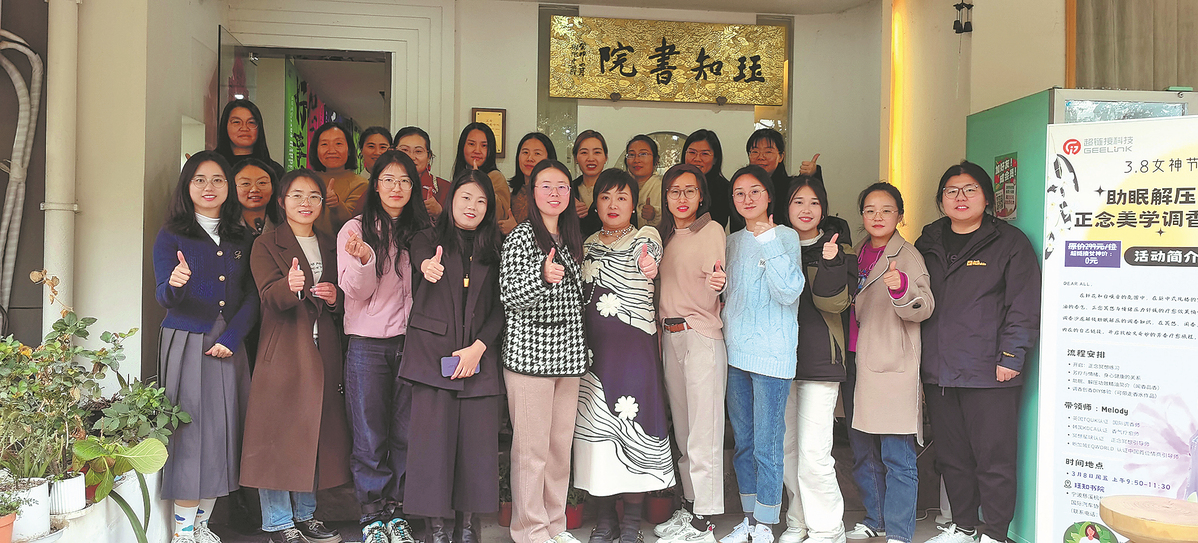Destination self-improvement
Niche market caters to those who prioritize their well-being rather than pursuing conventional tourism


Not limited to single sessions, the gallery offers residency-style experiences where learners can stay at the gallery's workshop for extended periods.
"Some people spend a week, or a month, here to complete more intricate pieces," she observes.
Early workshops catered primarily to children and student groups, particularly those traveling to Beijing. Adults accounted for less than 10 percent of participants at the time. But things have shifted.
"Now, about 30-40 percent of our offline learners are adults, and online, it's higher — up to 50-60 percent," Gao says.
The gallery's adult learners are a diverse and passionate group. Many are designers, educators, traditional culture enthusiasts, or professionals seeking to expand their skills, she points out.
The driving factors for adult participation vary.
Some are drawn by a deepening appreciation for intangible cultural heritage, while others look for stress relief or creative inspiration, she explains.
"Many adults find the process therapeutic," Gao says. "There's a sense of decompression through hands-on work. Some discover new ideas to apply in their professional lives."
To date, the gallery has offered customized courses for children and adults.
"Children's workshops are primarily experience-based: We have to balance hands-on learning with safety," says Gao.
"Adults, however, get more structured, detailed processes, and elements of design and customization."
She emphasizes the importance of personalization in adult programs, noting that frequent participants crave deeper, more engaging content.
"For adult learners, we consider their professions or specific interests and adjust course content accordingly."
Speaking about the biggest pull for the students, Gao says it's "the amazing transformation during firing".
"Before firing at 850 C, the colors are dull and grainy, but afterwards, they turn into smooth, glassy finishes," Gao explains with enthusiasm.
"It's like ceramics — what goes into the kiln is uncertain, and what comes out can be stunning or flawed. But the surprise is what makes it magical," she says.
yangfeiyue@chinadaily.com.cn
- Anti-corruption efforts focus more on work conduct issues
- Deeper reflections on 'cave-dwelling conversation'
- Fudan University sets AI education guidelines
- Haier ranks first in global sales for 17th consecutive year
- Norway's seafood exports hit record in 2025, China emerges as top three market
- Crucial tower of Shenzhen-Jiangmen Railway completed, marking significant milestone




































